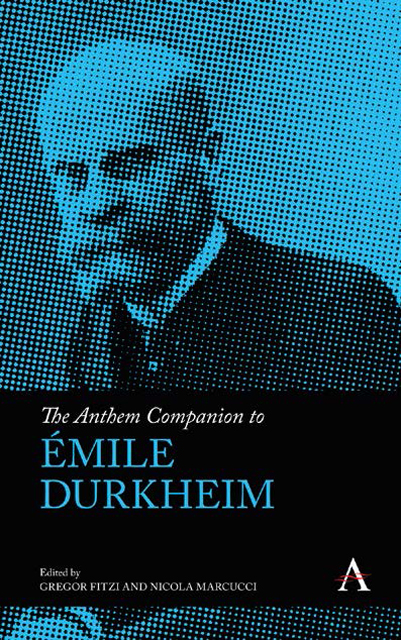Chapter Two - On the Autonomy of Social and Mental Entities: A Paraphrased Translation of ‘Individual and Collective Representations’
Published online by Cambridge University Press: 09 December 2022
Summary
My purpose in this essay is to provide a new perspective on Durkheim's theory, by composing a new English translation of the 1898 essay “Individual and Collective Representations” (I will refer to the essay as ICR). This is not a literal translation of Durkheim's essay; it is perhaps better called an interpretive paraphrase. I have rewritten ICR using terminology associated with contemporary sociological theory and philosophy of mind. I have relied heavily on the very accurate literal translation of Pockock in 1953 (Durkheim [1898] 1953), and in no way do I intend to replace that work. I hope that perhaps the version here, in combination with Pocock's translation, will provide additional insight into Durkheim's thinking.
I propose that it is possible to read Durkheim in a new way, drawing on recent arguments in the philosophy of mind. With advances in cognitive neuroscience— for example, brain imaging technologies such as functional magnetic resonance imaging (fMRI)— many scientists have argued that the concepts of psychology can be reduced to biological explanation. It is fairly common among psychologists today to hold that we can potentially explain in biological terms such psychological phenomena as memory, personality traits, attention, and creativity. This is a challenge to conventional cognitive psychology, which potentially will see its field disappear completely, reduced to cognitive neuroscience. However, a countervailing group of philosophers of mind argue that in spite of the developing successes in the field of cognitive neuroscience, in spite of the acknowledged fact that the mind emerges from the biological brain, the mind has in some sense an autonomous reality, a reality that will always warrant its own field of study: psychology. These non-reductionist defenders of psychology argue that there are mental entities, properties, and causal laws that cannot be reduced to explanation in terms of biological entities, properties, and laws. Some go further and argue that mental properties can be said to have causal powers over the biological brain. They make these arguments while also accepting that all psychological concepts— entities, properties, causation, laws— are nothing more than the biological brain.
- Type
- Chapter
- Information
- The Anthem Companion to Émile Durkheim , pp. 29 - 50Publisher: Anthem PressPrint publication year: 2022

